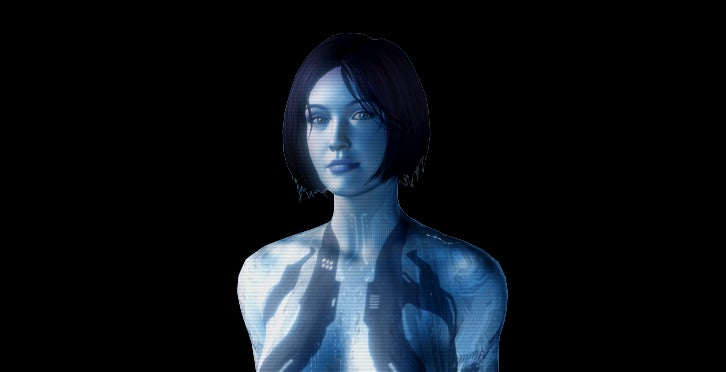Microsoft's Cortana: rival to Apple's Siri named after fictional AI
The next-generation of 'intelligent personal assistants' will step even closer to sci-fi's vision of artificial intelligent, but will this be in name only?

Microsoft are reportedly building their own voice-activated personal assistant for smartphones to compete with Apple’s Siri. The twist? They’re naming it after Cortana: a holographic artificial intelligence that appears in the popular Halo series of games.
Rumours of Cortana’s existence first surfaced in June thanks to leaked screenshots of a Lumia Windows Phone, but sources familiar with the matter have spoken to tech website ZDNet, confirming that the technology will be “more than just an app” and will be “core to the makeover of the entire [operating system]”.
Microsoft has been hinting at a reconfiguration of Windows to a more voice-centric interface for months now. In Steve Ballmer’s memo to staff in July regarding the company’s big reorganisation the CEO made reference to “a family of devices powered by a service-enabled shell”.
In plainer language, this means Microsoft’s core-services (search, email, etc) will be overlaid by a common user interface. Ballmer goes on to describe this system as “deeply personalized, based on the advanced, almost magical, intelligence in our cloud that learns more and more over time about people and the world.”
As well as making clear nods towards an artificial intelligence-style system, this also sounds extremely similar to Google Now: the search-giant’s comprehensive ‘intelligent personal assistant’ that answers questions via voice-commands and offers recommendations based on what it knows about your habits.
As with all these systems, the more information you give it, the better it will assist you. Plug your diary into the system and it'll notify you about upcoming meetings; let the system know where you live and where you go to work and it'll give you traffic recommendations for your daily commute.
However, it's joining up all these dots that really makes any assistant 'intelligent'. Microsoft handles this process with ‘Satori’ – a system embedded into the Bing search engine that connects information to create a richer, more human database of knowledge.
Although Cortana and Google Now promise to apply these contextually aware databases to your daily life they were first tested in search engines. Satori is the equivalent of Google’s Knowledge Graph, stringing the ‘nouns’ of search together (the people, the places, the objects) to deliver more meaningful responses to your search queries.
Microsoft says Satori will “broker information among our services to bring them together on our devices in ways that will enable richer and deeper app experience".
In other words, Microsoft wants to bring to life the sci-fi dream of a computer that functions as a personal assistant; answering questions and commands in a manner that is intuitive and actually helpful.
With this in mind, naming the system after a fictional AI makes perfect sense, but it's also kind of sneaky. By identifying their future assistant with a fictional character beloved by millions of gamers (the Halo series has sold more than 50m copies worldwide) Microsoft are tapping into a pre-fabricated set of positive associations for the brand. However, this might be a double-edged sword. If they want to meet the expectations raised by the name Cortana, Microsoft are going to have to make science fiction a reality.
Join our commenting forum
Join thought-provoking conversations, follow other Independent readers and see their replies
Comments